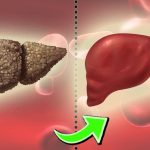Nathan Adrian’s Announcement Of Cancer
U.S. Olympic swimmer Nathan Adrian told Thursday (January 24, 2019) on Instagram that he has testicular cancer, but said doctors caught the disease in its early stages and “the prognosis is good.”
“I will be back in the water in a few short weeks with my sights fully set” on next year’s Tokyo Olympics, he wrote in the caption that accompanied the photo, which shows him next to his wife, Hallie.
30 years old Adrian, has won five gold medals over the past three Olympics (only six U.S. swimmers — male or female — have more). As a 19-year-old in 2008, he assisted the U.S. 400-meter freestyle relay team win gold by swimming the first leg in a preliminary heat. Four years afterward in London, he won the individual 100 freestyle competition and swam the freestyle leg of the gold medal-winning 400 medley relay team, and at Rio 2016, Adrian also won extra gold on both 400 relay teams. He also has one silver and two bronze medals.

In December 2018, Adrian was called to the U.S. swimming roster for this year’s Pan American Games, which start in July 2019 in Lima, Peru, though it is obscure whether he still will compete. He was expected to swim in the 50 and 100 freestyle events
Adrian wrote that he aspires his battle with cancer raises awareness of the disease.
“I’ve realized that too often we tend to avoid these important topics, ignore the potential warning signs and put off getting the medical help that we may need,” he said. “As I told my family, I’ll be putting my public health degree to work a little sooner than I planned!”
Testicular Cancer
Testicular cancer is also called as “rare” and “highly treatable” but it is the most common form of cancer for U.S. men between the ages of 15 and 35.
It takes place in the testicles (testes), that is situated inside the scrotum, a loose bag of skin underneath the penis. The testicles secrete male sex hormones and sperm for reproduction.
In contrast with other types of cancer, testicular cancer is rare. Testicular cancer is greatly treatable, even when cancer has transmitted beyond the testicle. Depending on the kind and stage of testicular cancer, you may get one of the various medication or a combination.
Symptoms Of Testicular Cancer
Signs and symptoms of testicular cancer are as follows:
- A lump or enlargement in either testicle
- The feeling of heaviness in the scrotum
- A dull ache in the abdomen or groin
- A sudden collection of fluid in the scrotum
- Pain or discomfort in a testicle or the scrotum
- Enlargement or tenderness of the breasts
- Back pain
- Cancer usually affects only one testicle.
When To See A Doctor
Visit your doctor if you find out any pain, swelling or lumps in your testicles or groin area, in particular, if these signs and symptoms last more than two weeks.
What Are The Causes Of Testicular Cancer
It is not obscure what leads to testicular cancer in the majority of cases.
Doctors have knowledge that testicular cancer happens when healthy cells in a testicle become modified. Healthy cells spring up and divide in an orderly way to hold back your body functioning normally. But on occasion some cells develop abnormalities, leading to this growth to get out of control. These cancer cells go on dividing even when new cells are not required. The piling up cells set up a mass in the testicle.
Much or less all testicular cancers initiate in the germ cells which is the cells in the testicles that form immature sperm. What leads to germ cells to become abnormal and grow into cancer is not known.
Risk Factors Of Testicular Cancer
Factors which may hike up your risk of testicular cancer consist of:
An undescended testicle (cryptorchidism)
The testes develop in the abdominal area at the time of fetal development and commonly go down into the scrotum before birth.
Men who have a testicle which has never descended are at a higher probability of testicular cancer than are men whose testicles descended normally. The vulnerability remains hiked up even if the testicle has been surgically relocated to the scrotum.
Yet, most men who develop testicular cancer do not have a history of undescended testicles.
Abnormal testicle development
Conditions which lead testicles to develop abnormally, such as Klinefelter syndrome, may elevate your risk of testicular cancer.
Family history
If family members have had testicular cancer, you may also have an elevated risk.
Age
Testicular cancer impacts teens and younger men, in particular, those between ages 15 and 35. However, it can happen at any age.
Race
Testicular cancer is more typical in white men than in black men.
How To Prevent From Testicular Cancer
There is no approach to impede testicular cancer.
Some doctors suggest regular testicle self-examinations find out testicular cancer at its earliest stage. But all doctors do not agree. Discuss testicular self-examination with your doctor if you are not sure about whether it is right for you.



